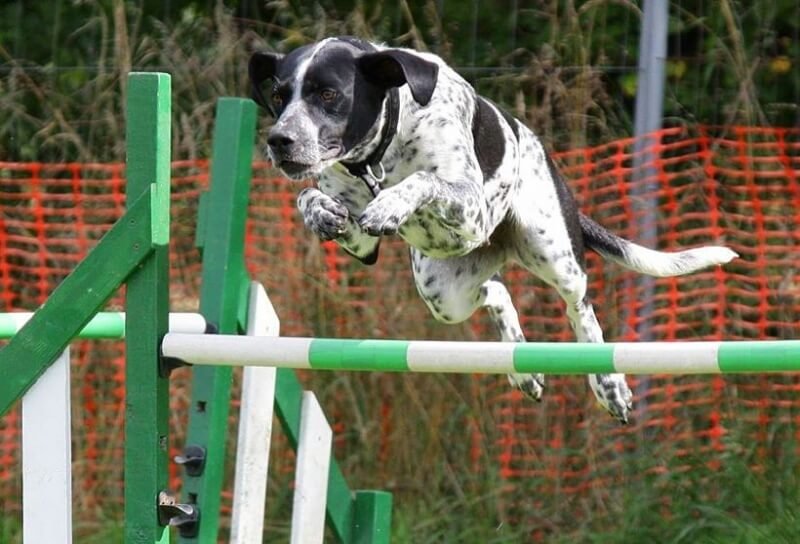Compare the sprinting Shetland sheepdog with the sluggish St. Bernard, and it’s clear a dog’s genes play a large role in how athletic it is. Now, at the Biology of Genomes meeting here, scientists report identifying 59 genes linked to canine athletics, which apparently affect everything from heart rate to muscle strength. Early results suggest some may eventually help us understand human superstars.
…
[Jaemin Kim] decided to start with the genes that turn sport dogs such as pointers, setters, and retrievers into the Michael Jordans of the canine world. He and colleagues compared the genomes of 21 individuals from 10 sport hunting breeds with 27 individuals from nine terrier breeds.…
He and his colleagues could not easily verify [the genes’] effects on athletic performance, but most are linked to traits including blood flow, heart rate, muscle strength, and even pain perception. One seems to help dogs remain calm after they hear a gunshot, he added, which may make them stable hunting companions; a different version in terriers may account for their well-known neuroticism.
…
[Canine genomicist Elaine] Ostrander says the new results might one day help us better understand the genetic basis of athleticism in humans. Already, other researchers have implicated one of the 59 genes in improving human performance by improving blood flow, and it’s likely, she says, that others will also prove important.Read full, original post: These 59 genes may make your dog more athletic































